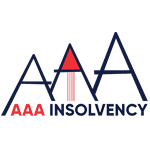Bar under Section 10A of IBC on initiation of CIRP to apply retrospectively
(Ramesh Kymal v. M/s Siemens Gamesa Renewable Power Pvt. Ltd.)
In a recent judgment, the Supreme Court through a bench consisting of Justice DY Chandrachud and Justice MR Shah delivered a judgment holding that Section 10 A of the Insolvency and Bankruptcy Code, 2016 bars filing of applications for the commencement of corporate insolvency resolution process (CIRP) in respect of a corporate debtor for a default that occurred on or after 25 March 2020, even if such application was filed before 5 June 2020, the date on which the amendment came into force.
The Bench observed that the retrospective bar on the filing of applications for the commencement of CIRP during the stipulated period does not extinguish the debt owed by the corporate debtor or the right of the creditors to recover it.
The issue in this matter was whether the provisions of Section 10A stand attracted to an application under Section 9 which was filed before 5 June 2020 respect of a default which has occurred after 25 March 2020.
There are three significant dates in the present proceeding:
- 30 April, 2020- Date of default (as per Form 5)
- 11 May, 2020- Date of Claim made by Operational Creditor (Form 5 filing date)
- 5 June, 2020- (Date of the amendment)
The amended Section 10A under the Insolvency and Bankruptcy Code, 2016 is:
Section 10A- Suspension of initiation of corporate insolvency resolution process— Notwithstanding anything contained in sections 7, 9 and 10, no application for initiation of corporate insolvency resolution process of a corporate debtor shall be filed, for any default arising on or after 25th March, 2020 for a period of six months or such further period, not exceeding one year from such date, as may be notified in this behalf:
Provided that no application shall ever be filed for initiation of corporate insolvency resolution process of a corporate debtor for the said default occurring during the said period.
Explanation – For the removal of doubts, it is hereby clarified that the provisions of this section shall not apply to any default committed under the said sections before 25th March, 2020.
The explanation clarifies that Section 10A shall not apply to any default which has been committed under Sections 7, 9 and 10 before 25 March 2020.
The contention raised was that the expression ‘shall be filed’ is indicative of a legislative intent to make the provision prospective so as to apply to only those applications which were filed after 5 June, 2020 when the provision was inserted. This construction was rejected by the Bench. It was observed that adopting the contention of the appellant would defeat the object and intent behind the insertion of Section 10A. The onset of COVID-19 pandemic has had serious repercussions on the finances of the corporate enterprises. The Ordinance and the Amending Act enacted by Parliament, adopt 25 March 2020 as the cut-off date. The expression ‘shall ever be filed’ is a clear indicator that the intent of the legislature is to bar the institution of any application for the commencement of the CIRP in respect of a default which has occurred on or after 25 March 2020 for a period of six months, extendable up to further date, as notified.
It was further observed that the explanation removes doubts and brings about a clarity that the statutory provision shall not apply to any default before 25 March 2020. The substantive part of Section 10A is to be construed harmoniously with the first proviso and the explanation. Acceptance of the submission of the appellant would defeat the very purpose and object underlying the insertion of Section 10A. For, it would leave a whole class of corporate debtors where the default has occurred on or after 25 March 2020 outside the pale of protection because the application was filed before 5 June 2020.
The Apex Court further said that there is no such requirement under section 10A wherein the Adjudicating Authority is required to hold an enquiry into whether, and if so, to what extent, the financial health of the corporate debtor was affected due to the onset of Covid-19 pandemic. Parliament stepped in legislatively because of the widespread public health crisis. It is obvious that the applicants may not come forth to take up the process of resolution of insolvencies, which would further lead to a situation where the corporate debtor goes under liquidation and no longer remains a going concern. This is against the very object of the IBC as was noted by a two-judge bench of this Court in its judgment in Swiss Ribbons (P) Ltd. v. Union of India. The embargo contained in section 10A must receive a purposive construction so that it advances the very object which was sought to be achieved by its enactment.
Concluding the judgment, the court stated the difference between ‘date of initiation of CIRP’ and ‘insolvency commencement date’. It said that the date of initiation of CIRP is the date on which a financial creditor, operational creditor or corporate applicant makes an application to the adjudicating authority for initiating the process. On the other hand, the insolvency commencement date is the date of the admission of the application.
The Court was in agreement with the view and conclusion of the NCLAT. Accordingly, the appeal was dismissed.
